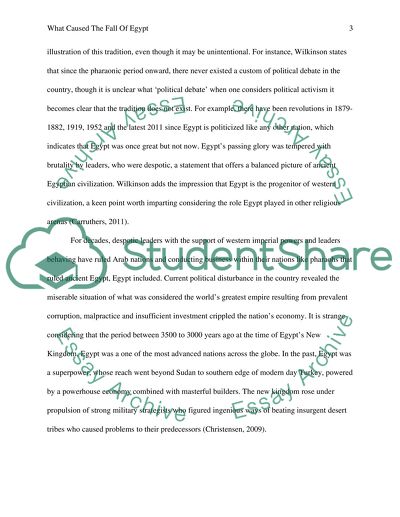Cite this document
(“What Caused the fall of Egypt Research Paper Example | Topics and Well Written Essays - 1000 words”, n.d.)
Retrieved de https://studentshare.org/literature/1481065-what-caused-the-fall-of-egypt
Retrieved de https://studentshare.org/literature/1481065-what-caused-the-fall-of-egypt
(What Caused the Fall of Egypt Research Paper Example | Topics and Well Written Essays - 1000 Words)
https://studentshare.org/literature/1481065-what-caused-the-fall-of-egypt.
https://studentshare.org/literature/1481065-what-caused-the-fall-of-egypt.
“What Caused the Fall of Egypt Research Paper Example | Topics and Well Written Essays - 1000 Words”, n.d. https://studentshare.org/literature/1481065-what-caused-the-fall-of-egypt.


